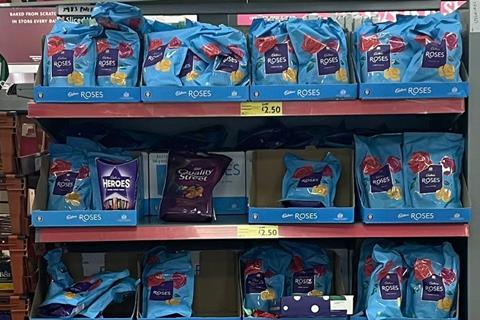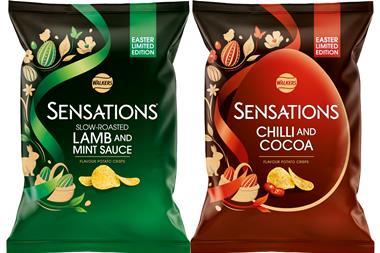
The government has admitted its decision to delay a clampdown on HFSS volume promotions will set the aims of the obesity strategy back by years – but claims it is committed to bringing them in despite speculation the measures may be dropped permanently.
Its response to the Environment, Food and Rural Affairs Committee inquiry on food security was published today, with ministers defending the decision to shelve the proposals on volume promotions, alongside a delay to its plans for a clampdown on junk food advertising.
The committee had called on the government to justify the move and produce a “detailed timetable” of how the delay will impact on consumers.
“Delaying the volume price promotion restrictions to October 2025 will result in additional years for the health benefits to start to accrue,” the government admitted in its response.
“However, over the long term, we still expect these measures to have a significant impact on obesity.
“We believe this is the best approach to tackle the long-term problem of obesity, while recognising the current challenges caused by higher food prices.”
Ministers also rejected calls from the committee for the government to act on Henry Dimbleby’s proposal for a raft of taxes on HFSS products, as set out in his National Food Strategy.
“The government does not consider that now is the right time to introduce new taxes that will push up the cost of food,” it said.
“The affordability of food, and individuals’ access to food, is a key element of the government’s approach to tackling poverty as we manage the impact of cost of living pressures.”
Ministers, however, pointed to ongoing talks with the industry over launching a new system of voluntary reporting on health targets.
As revealed by The Grocer in September, there are plans for all large food companies to commit to a new system of reporting transparent health-based sales data, in a bid to incentivise healthier diets.
The plans have been drawn up by an industry working group reporting to the Department of Health and Social Care (DHSC), including Tesco, Sainsbury’s and Morrisons, and suppliers such as Nestlé, Mars and General Mills.
“We are working with the food industry to make further progress on voluntary reformulation and ensure it is easier for the public to make healthier choices,” said today’s response.
However, it again ruled out plans, as recommended by Dimbleby, for reporting to be made mandatory.
“We continue to engage regularly with industry, investors and civil society, working closely with experts from across the food system to develop recommendations for a mutually agreed set of health metrics for large food and drink companies that support companies to voluntarily report in a consistent way,” it said.
“It will consider metrics that incentivise and more effectively measure progress towards improving the healthiness of food and will enable and encourage food companies to demonstrate progress on the healthiness of their sales. Reporting will be voluntary.”
Efra committee chair Sir Robert Goodwill said the response showed the government was dithering in the face of the obesity crisis.
“The government has the opportunity to act now to improve people’s health and their access to healthy food in the immediate term, by adopting the specific measures we recommended,” he said.
“We are disappointed that in the midst of an obesity crisis, the government is taking a leisurely approach to tackling unhealthy eating habits.”



















No comments yet